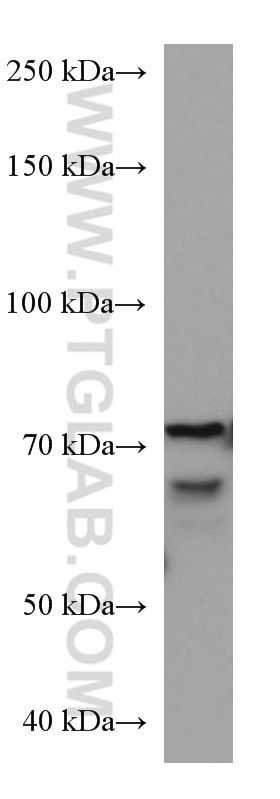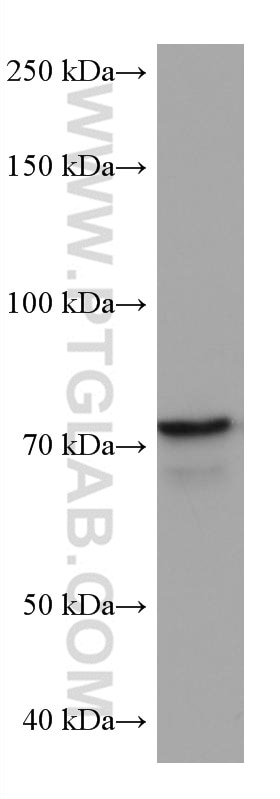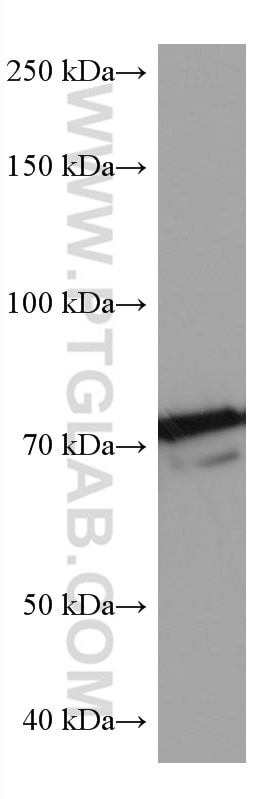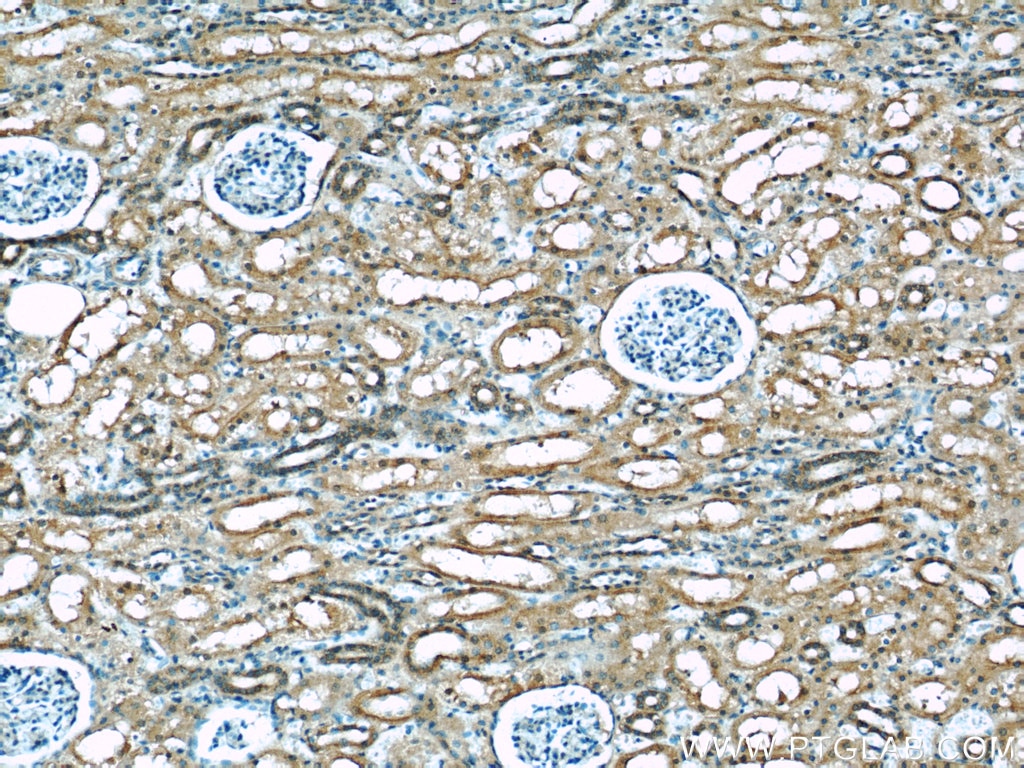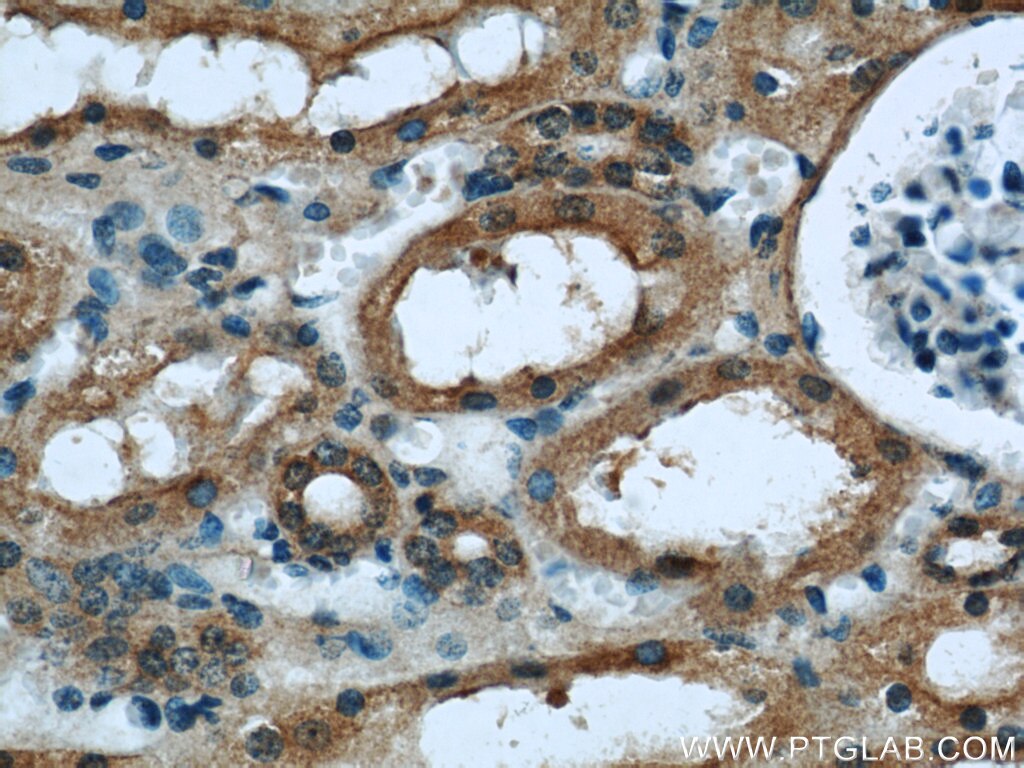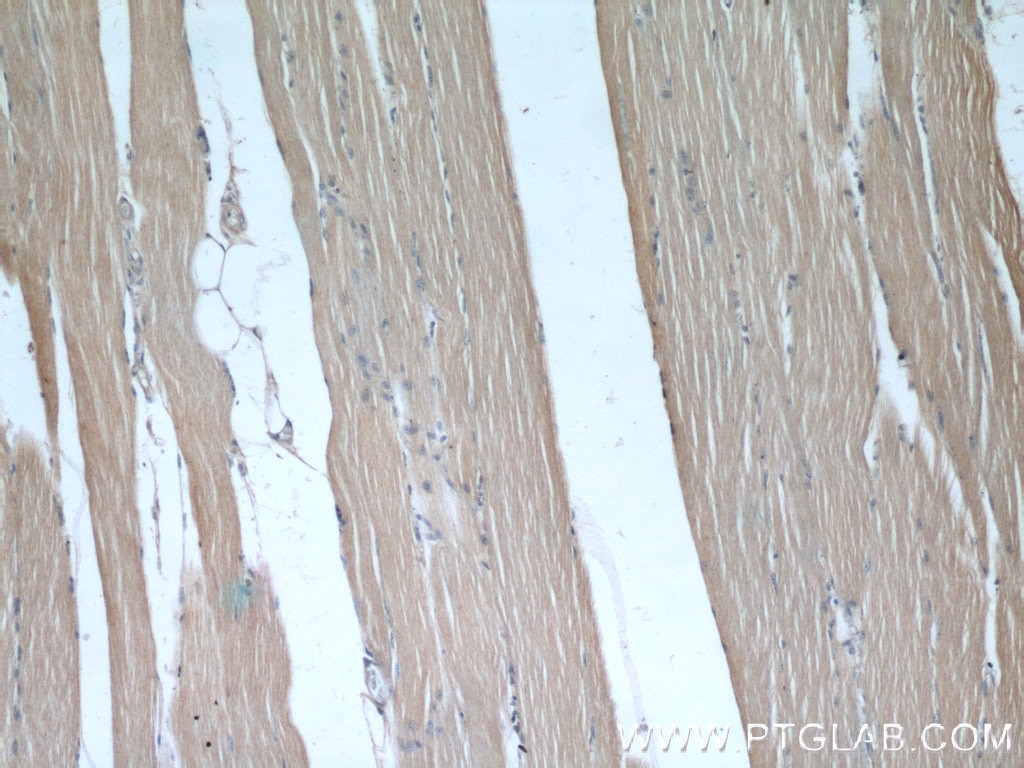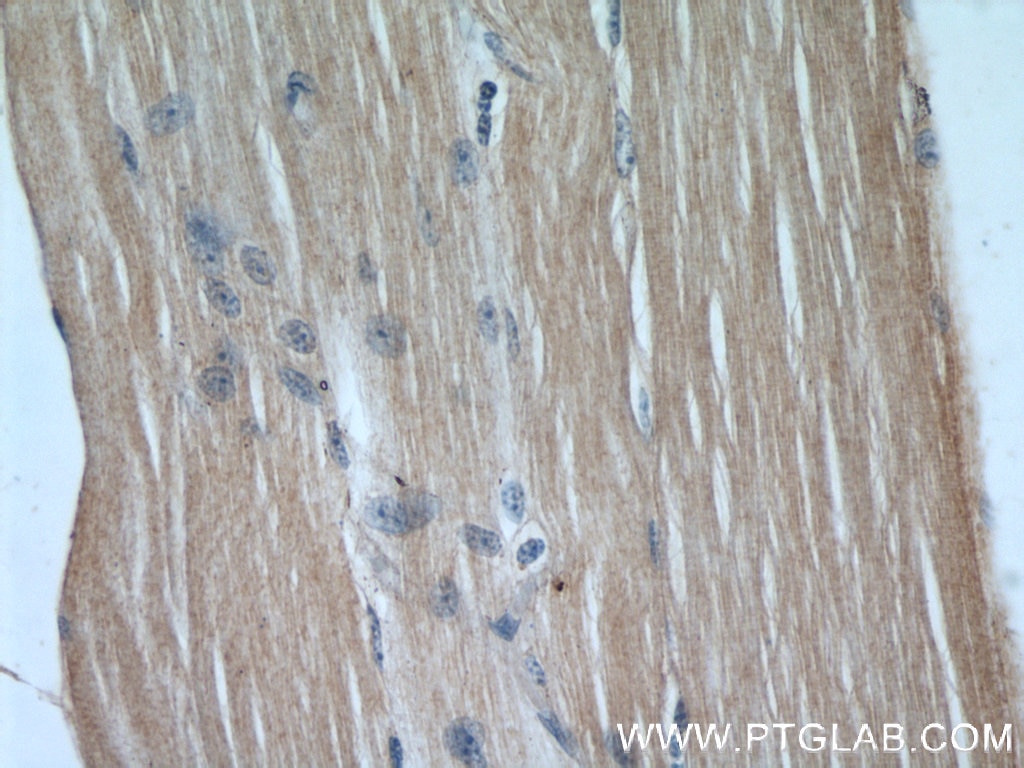Tested Applications
| Positive WB detected in | 4T1 cells, HeLa cells, HSC-T6 cells, Jurkat cells, MCF-7 cells, NIH/3T3 cells |
Mouse monoclonal antibodies of IgA isotype can be detected with "anti-mouse IgG (H+L)" secondary antibodies.
Recommended dilution
| Application | Dilution |
|---|---|
| Western Blot (WB) | WB : 1:1000-1:4000 |
| It is recommended that this reagent should be titrated in each testing system to obtain optimal results. | |
| Sample-dependent, Check data in validation data gallery. | |
Published Applications
| KD/KO | See 3 publications below |
| WB | See 117 publications below |
| IHC | See 8 publications below |
| IF | See 22 publications below |
| IP | See 3 publications below |
| CoIP | See 4 publications below |
Product Information
60027-1-Ig targets KEAP1 in WB, IHC, IF, IP, CoIP, ELISA applications and shows reactivity with human, mouse, rat samples.
| Tested Reactivity | human, mouse, rat |
| Cited Reactivity | human, mouse, rat, pig, chicken |
| Host / Isotype | Mouse / IgA |
| Class | Monoclonal |
| Type | Antibody |
| Immunogen |
CatNo: Ag0779 Product name: Recombinant human KEAP1 protein Source: e coli.-derived, PGEX-4T Tag: GST Domain: 325-624 aa of BC002930 Sequence: GRLIYTAGGYFRQSLSYLEAYNPSDGTWLRLADLQVPRSGLAGCVVGGLLYAVGGRNNSPDGNTDSSALDCYNPMTNQWSPCAPMSVPRNRIGVGVIDGHIYAVGGSHGCIHHNSVERYEPERDEWHLVAPMLTRRIGVGVAVLNRLLYAVGGFDGTNRLNSAECYYPERNEWRMITAMNTIRSGAGVCVLHNCIYAAGGYDGQDQLNSVERYDVETETWTFVAPMKHRRSALGITVHQGRIYVLGGYDGHTFLDSVECYDPDTDTWSEVTRMTSGRSGVGVAVTMEPCRKQIDQQNCTC Predict reactive species |
| Full Name | kelch-like ECH-associated protein 1 |
| Calculated Molecular Weight | 624 aa, 70 kDa |
| Observed Molecular Weight | 60~70 kDa |
| GenBank Accession Number | BC002930 |
| Gene Symbol | KEAP1 |
| Gene ID (NCBI) | 9817 |
| RRID | AB_2132623 |
| Conjugate | Unconjugated |
| Form | Liquid |
| Purification Method | Caprylic acid/ammonium sulfate precipitation |
| UNIPROT ID | Q14145 |
| Storage Buffer | PBS with 0.02% sodium azide and 50% glycerol, pH 7.3. |
| Storage Conditions | Store at -20°C. Stable for one year after shipment. Aliquoting is unnecessary for -20oC storage. 20ul sizes contain 0.1% BSA. |
Background Information
Kelch-like ECH-associated protein 1 (KEAP1) is a negative regulator of nuclear factor erythroid 2-related factor 2 (Nrf2), a transcription factor governing the antioxidant response.
What is the molecular weight of KEAP1 protein? Are there any isoforms of KEAP1?
The molecular weight of KEAP1 protein is 70 kDa. The KEAP1 gene gives rise only to protein isoforms, but mutations of KEAP1 protein have been found in various cancer types.
What is the subcellular localization of KEAP1?
KEAP1 resides in the cytoplasm, where it binds to Nrf2, targeting it for degradation and preventing translocation of Nrf2 to the nucleus.
How does KEAP1 control Nrf2 levels? Is KEAP1 post-translationally modified?
KEAP1 is rich in reactive cysteine residues, whose thiol groups play a role in binding to CUL3 and the polyubiquitination of Nrf2, which leads to degradation of Nrf2 via the proteasome system. During oxidative stress, electrophiles and reactive oxygen species (ROS) modify the KEAP1 thiol groups, reducing the affinity of KEAP1 to CUL3 and the stabilization of Nrf2. Nrf2 then translocates to the nucleus, where it binds to the antioxidant responsive elements (AREs) and induces the expression of antioxidant proteins (PMID: 16354693).
How to measure oxidative stress using KEAP1 and Nrf2 proteins as a readout
Under basal conditions (unstressed cells), a detectable KEAP1 protein level is observed. Oxidative stress modifies KEAP1 protein activity by increasing the Nrf2 protein levels. This can be measured, for example, using western blotting (PMID: 27697860). KEAP1 protein levels are not altered by oxidative stress.
What is the role of the KEAP1-Nrf2 pathway in health and disease?
The KEAP-Nrf2 pathway plays a vital role in redox homeostasis and cryoprotection. Inhibition of KEAP1 activity leads to the activation of Nrf2 and increase the response to oxidative stress and anti-inflammatory effects (PMID: 29717933). The activation of Nrf2 can be beneficial in the case of metabolic diseases, such as diabetes, as well as neurodegenerative diseases such as Parkinson's and Alzheimer's diseases. However, the increased activation of Nrf2 is also known to promote tumor growth and metastasis. Mutations in both KEAP1 and Nrf2 were found in various solid tumor types.
Protocols
| Product Specific Protocols | |
|---|---|
| IHC protocol for KEAP1 antibody 60027-1-Ig | Download protocol |
| WB protocol for KEAP1 antibody 60027-1-Ig | Download protocol |
| Standard Protocols | |
|---|---|
| Click here to view our Standard Protocols |
Publications
| Species | Application | Title |
|---|---|---|
ACS Nano Neutrophil Nanovesicle Protects against Experimental Autoimmune Encephalomyelitis through Enhancing Myelin Clearance by Microglia | ||
J Clin Invest FAM117B promotes gastric cancer growth and drug resistance by targeting the KEAP1/NRF2 signaling pathway | ||
Mol Cell KEAP1 E3 ligase-mediated downregulation of NF-kappaB signaling by targeting IKKbeta. | ||
J Clin Invest Identification of CD84 as a potent survival factor in acute myeloid leukemia | ||
Aging Cell Chaperone-mediated autophagy degrades Keap1 and promotes Nrf2-mediated antioxidative response. | ||
Cell Death Dis ΔNp63α promotes radioresistance in esophageal squamous cell carcinoma through the PLEC-KEAP1-NRF2 feedback loop |
Reviews
The reviews below have been submitted by verified Proteintech customers who received an incentive for providing their feedback.
FH Hala (Verified Customer) (11-24-2021) | good
|





